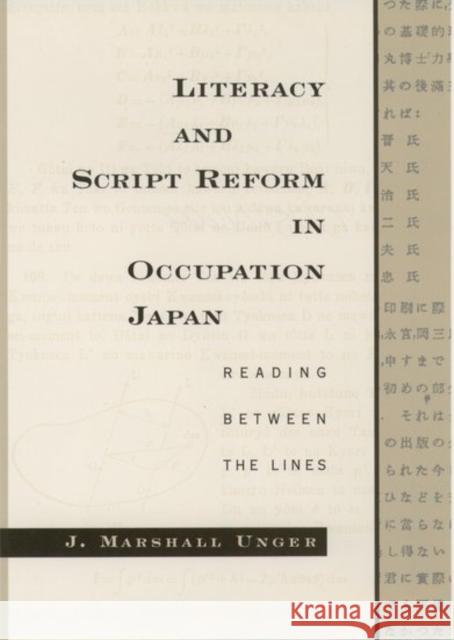Literacy and Script Reform in Occupation Japan: Reading Between the Lines » książka
Literacy and Script Reform in Occupation Japan: Reading Between the Lines
ISBN-13: 9780195101669 / Angielski / Twarda / 1996 / 192 str.
This book challenges the widespread belief that overzealous Americans forced unnecessary script reforms on an unprepared, unenthusiastic, but helpless Japan during the Occupation. Unger presents neglected historical evidence showing that the reforms implemented from 1946 to 1959 were both necessary and moderate. Although the United States Education Mission of 1946 recommended that the Japanese give serious consideration to the introduction of alphabetic writing, key American officials in the Civil Information and Education Section of GHQ/SCAP delayed and effectively killed action on this recommendation. Japanese advocates of romanization nevertheless managed to obtain CI&E approval for an experiment in elementary schools to test the hypothesis that schoolchildren could make faster progress if spared the necessity of studying Chinese characters as part of non-language courses such as arithmetic. Though not conclusive, the experiment's results supported the hypothesis and suggested the need for more and better testing. Yet work was brought to a halt a year ahead of schedule; the Ministry of Education was ordered to prepare a report that misrepresented the goal of the experiment and claimed it proved nothing. The whole episode dropped from official and scholarly view--until the publication of this book.











